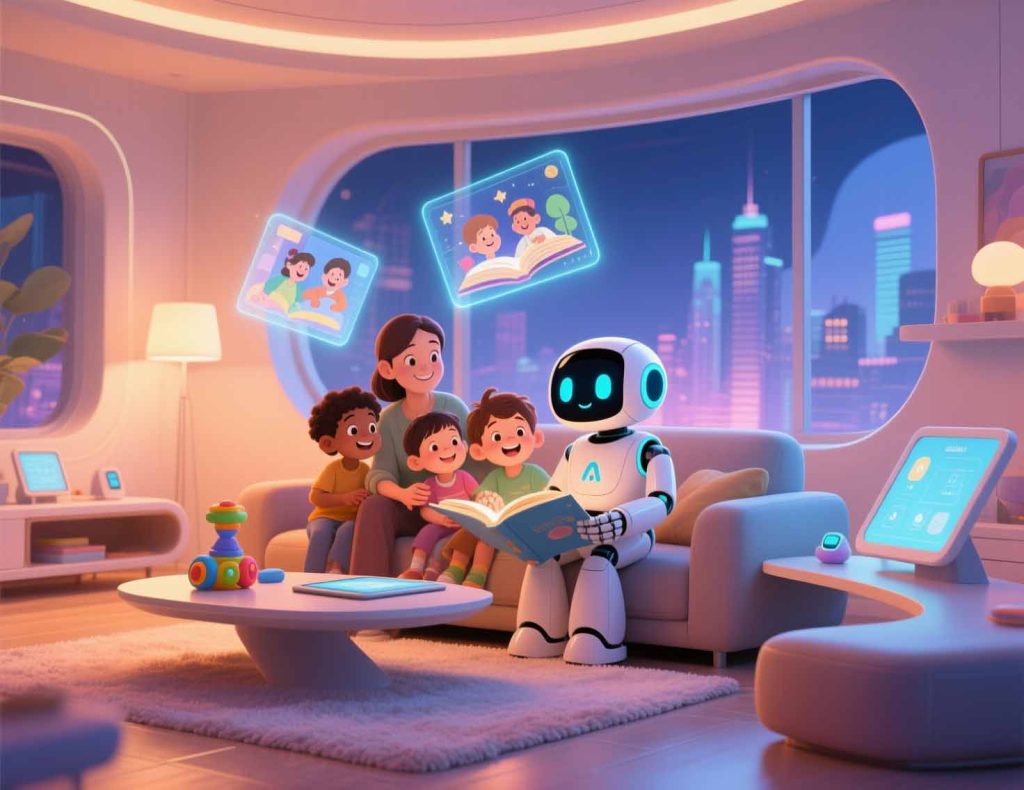Picture this: it’s a Tuesday evening, you’re running late from work, and instead of calling grandma or your neighbor, you just press a button, and a robot shows up to take care of the kids. Sounds like a sci-fi movie, right? But with AI advancing at lightning speed, the idea of a robot babysitter isn’t as far-fetched as it sounds.
From smart speakers that can read bedtime stories to robotic companions that monitor activity and provide learning exercises, AI is slowly creeping into homes. But the real question is: can a machine genuinely step into the role of a parent—or at least a babysitter—without missing the messy, unpredictable magic of human care?
The Rise of AI in the Household
AI in parenting isn’t just about keeping kids busy. Think about smart monitors that detect unusual activity, apps that remind kids to brush their teeth, or even AI-enabled robots that can teach languages and basic math. Some startups are experimenting with fully autonomous robots designed to play, supervise, and even comfort children.
On paper, it seems perfect: a tireless helper who never gets tired, never yells, and can multi-task like a superhero. But parenting isn’t just a checklist of tasks—it’s emotional, intuitive, and often chaotic in ways no algorithm can fully predict.
What AI Can Do Really Well
Let’s give credit where it’s due. AI has clear strengths when it comes to helping parents:
24/7 Supervision: Unlike humans, AI doesn’t get tired, distracted, or annoyed.
Educational Assistance: AI tutors and robots can reinforce learning, help with homework, and offer customized activities.
Safety Alerts: Some AI systems can detect falls, unusual behaviors, or emergencies and alert parents immediately.
Entertainment & Engagement: From storytelling to interactive games, AI can keep kids engaged in creative ways.
In short, for structured tasks and data-driven decisions, AI is impressive.
The Human Touch AI Can’t Replace
But let’s be honest—parenting is messy. Kids cry for reasons that don’t always make sense, throw tantrums over nothing, and need empathy more than efficiency.
AI might remind a child to eat vegetables, but it can’t soothe a broken heart after a playground feud. It can tell a joke, but it can’t laugh with a child or share a proud, teary-eyed moment at a school performance.
Emotion, intuition, and connection—these are things AI can’t replicate (at least not yet).
Real-World Experiments
Some companies are testing AI “nanny” robots in controlled environments. They can interact, respond to questions, and even detect emotions through facial expressions. Results are promising—but there are limits.
For example, one AI robot might comfort a child after a minor scare, but it struggles to handle complex emotional scenarios, like sibling rivalry or homesickness. And while it can follow rules flawlessly, it lacks the judgment and flexibility that experienced caregivers provide.
Should Parents Trust AI Babysitters?
Here’s the tricky part. AI can support parenting—it can be an assistant, an extra pair of eyes, and even an educational tutor—but it’s not a substitute for human care.
Parents still provide love, judgment, and moral guidance that a robot can’t authentically deliver. AI might help keep routines on track or prevent accidents, but it can’t replace hugs, emotional bonding, or the subtle lessons children learn from human interactions.
A Hybrid Future
The most likely scenario? AI won’t replace parents; it will supplement them. Think of a robot babysitter as a helpful co-pilot: guiding learning activities, alerting parents to issues, or entertaining kids while the human parent focuses on work or other tasks.
It’s the best of both worlds: human warmth and judgment, paired with tireless, data-driven assistance. Parents will still need to make the big decisions and handle the unpredictable, emotional side of raising kids.
The Ethical and Social Considerations
Of course, the rise of AI in parenting raises questions:
- Privacy: Are conversations and behaviors being recorded? Who has access?
- Attachment: Could children form unhealthy bonds with machines instead of humans?
- Bias: AI systems reflect the data they are trained on—are they reinforcing stereotypes or missing key cultural nuances?
These aren’t just technical concerns—they affect the heart of parenting.
Final Thoughts: Robot Babysitters or Human Co-Pilots?
So, could a robot babysitter really work? Partially. AI can help, support, and enhance parenting, but it can’t replace the human touch that children need.
The future is likely a collaboration: humans providing love, guidance, and moral insight, and AI offering tireless support, entertainment, and monitoring. A robot can teach math, read bedtime stories, or alert you to a spill—but it can’t feel pride, share joy, or hug away a nightmare.
At the end of the day, AI is a tool, not a parent. And let’s be honest—no algorithm can match the magic of a parent’s love.



